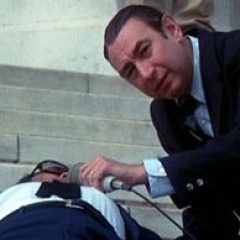Though my Southern dialect isn’t particularly strong, it attracted notice from a unfortunate date I endured years ago in Los Angeles. Minus any nod to decorum, my suitor advised that I lose my accent or risk being mistaken for a simpleton.
“You mean like that idiot Flannery O’Connor,” I shot back.
It’s a common defense for Southerners in strange lands forced to balance pride with contrition. “Yeah, but William Faulkner was from the South.” So was Tennessee Williams, Thomas Wolfe, Harper Lee, Alice Walker, Eudora Welty, Erskine Caldwell, James Dickey and, of course, Flannery O’Connor.
“The Southerner is usually tolerant of those weaknesses that proceed from innocence,” O’Connor *said, and that understanding is evidenced in her work.
 With her trademark dark humor and unsparing characterizations of eccentrics, prudes and miscreants, “A Good Man is Hard to Find” (included in a collection of her short stories by the same name) ranks among the author’s most admired works. It takes place on a road near the town in middle Georgia where my father, grandfather and great-grandfather were raised.
With her trademark dark humor and unsparing characterizations of eccentrics, prudes and miscreants, “A Good Man is Hard to Find” (included in a collection of her short stories by the same name) ranks among the author’s most admired works. It takes place on a road near the town in middle Georgia where my father, grandfather and great-grandfather were raised.
Somewhere outside Toomsboro is where, in O’Connor’s best-known short story, “A Good Man Is Hard to Find,” a family has a car accident and a tiresome old grandmother has an epiphany. The fog of petty selfishness that has shrouded her life clears when she feels a sudden spasm of kindness for a stranger, a brooding prison escapee who calls himself the Misfit.
Of course, that’s also the moment that he shoots her in the chest, but in O’Connor’s world, where good and evil are as real as a spreading puddle of blood, it amounts to a happy ending. The grandmother is touched by grace at the last possible moment, and she dies smiling.
“She would of been a good woman,” the Misfit said, “if it had been somebody there to shoot her every minute of her life.”
Like any author, O’Connor was profoundly influenced by her surroundings, and sometimes I regret my more pedestrian suburban upbringing. But at least I was exposed, if only in brief intervals, to Toomsboro, one of the starker little towns you’ll find.
 Surnames can get you places in the South, and on that score I’m lucky. When the inevitable happens and I land in the state mental health hospital in Milledgevlle, I can expect some degree of favorable treatment, as there’s a wing named after my great uncle.
Surnames can get you places in the South, and on that score I’m lucky. When the inevitable happens and I land in the state mental health hospital in Milledgevlle, I can expect some degree of favorable treatment, as there’s a wing named after my great uncle.
Not much of an honor, but that’s how it was intended. Fitting, actually, considering Uncle Joe was a tortured intellect who would take to his room for months at at time: “Joe’s got ‘the blacks’ again,” his wife would say.
Too bad he never met the young Catholic girl who lived in Milledgeville, about 20 miles up the road. I’m sure O’Connor would’ve found him of great use.
*More wisdom from O’Connor:
“The truth does not change according to our ability to stomach it.”
“To expect too much is to have a sentimental view of life and this is a softness that ends in bitterness.”
“Faith is what someone knows to be true, whether they believe it or not.”
“Conviction without experience makes for harshness.”
“I don’t deserve any credit for turning the other cheek as my tongue is always in it.”
“When in Rome, do as you done in Milledgeville.”

Leave a comment